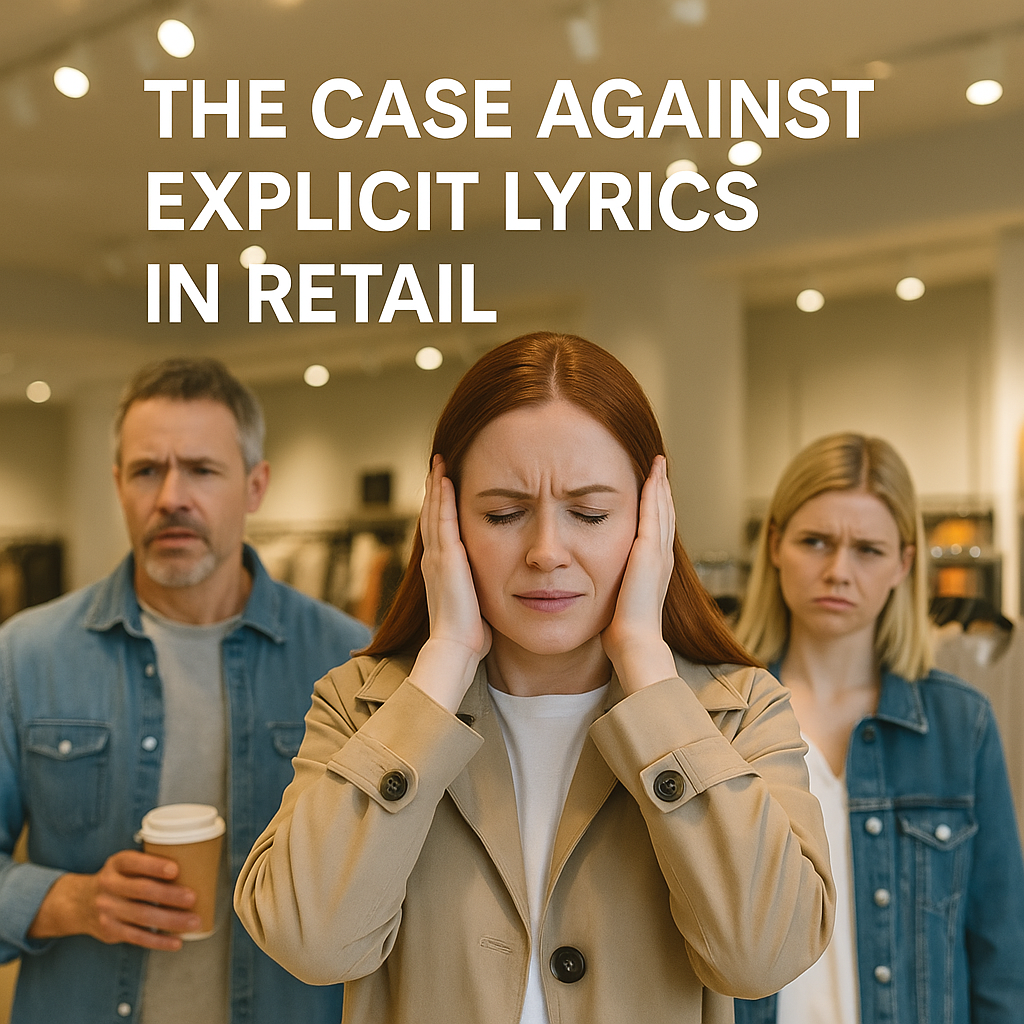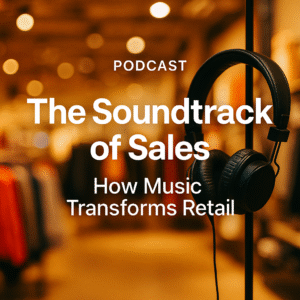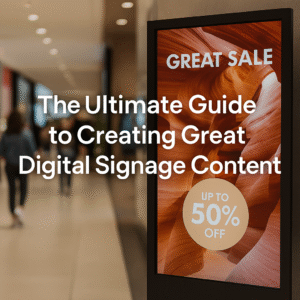I just got off the phone with a potential client who called in a panic.
While walking through a branch of her clothing chain, she heard a song titled “I Like To F***” play over the store speakers. She wasn’t the only one to hear it. In the space of 3 minutes, she said, every customer walked out of the store. Just like that. She suspects some of them will never come back. And all it took was one four-letter word.
The reason for her call now? She’d been vacillating for months over deciding on working with us, but could we now please take over her in-store music experience and make sure something like that never happens again.
Of course, we will, I said. And of course, it won’t.
We’re not the censor board, but we do draw the line at the alphabet soup of obscenities that pepper the lyrics of many popular songs. There’s a reason for it. In fact, there are several, and they’re not just about being “family-friendly.” They’re about brand integrity, customer perception, and your bottom line.
The Real Impact of Explicit Lyrics on Retail Spaces
It should be common knowledge by now that music has a profound effect on emotions and significantly influences the overall shopping experience. Research shows that music can affect everything from how long customers stay in your store, to how much they spend, to how they feel about your brand long after they’ve left.
But not all music is created equal. While artistic freedom is a wonderful thing, and many people enjoy edgy, provocative music in their personal time, the context in which it’s played makes a world of difference.
Play explicit lyrics in a retail environment, especially without knowing it, and you could be saying things your brand never intended to. You might be telling customers that you’re careless. Or that you’re trying too hard to be edgy. Or worse, that you simply don’t care what kind of experience your shoppers have.
And here’s the kicker: you don’t get to explain what happened. The song plays. They hear it. They leave. That’s it.
Professionalism and Brand Alignment: Why It Matters
Whether you’re a boutique fashion retailer or a nationwide home goods chain, every detail of your store, lighting, layout, scent, staff interaction, and yes, music, contributes to your professional image.
What message does it send if the music undermines the very values you’ve spent years building into your brand? Playing tracks with profanity or sexually explicit content can feel jarring in a space that otherwise exudes polish, warmth, or class.
Retailers spend thousands crafting Instagram-worthy visual displays, commissioning interior designers, and training staff to deliver premium service. But all that can be undone in seconds if a customer hears something crass or jarring over the speakers. Music isn’t background noise. It’s a brand voice. If that voice suddenly shouts a curse word into your customer’s ear, it’s jarring. It’s unprofessional. And it’s unforgettable for all the wrong reasons.
Avoiding Offense in a Diverse Retail Landscape
One of the beautiful things about retail is that it brings together people from all walks of life. Families with kids. Grandparents. Teenagers. Couples. Tourists. Businesspeople. Different ages, faiths, cultures, values. And they all bring with them different levels of tolerance for what’s acceptable in public.
It’s not just about not offending anyone — it’s about making everyone feel welcome. If there’s a parent with young kids in the store, and suddenly a song starts playing that’s full of sexually suggestive lyrics, that parent is going to remember. They might complain. They might leave. And they might not come back.
The truth is, you don’t need to push boundaries with your store playlist. You need to build comfort and trust. That’s what encourages people to linger, explore, and make a purchase.
The Case for Clean, Curated Playlists
Choosing music with clean lyrics doesn’t mean your playlist has to be bland or boring. On the contrary, when you work with professionals who specialize in curating retail audio experiences, you get music that is:
– Aligned with your brand personality
– Tailored to your target demographic
– Updated regularly to stay fresh and relevant
– Screened for offensive or jarring content
– Adapted to different times of day or special events
At Alenka Media, for instance, we don’t just delete explicit tracks. We build playlists that support your store’s goals, whether that’s driving footfall, creating a luxurious ambiance, or encouraging high-energy impulse buys. And unlike a random Spotify playlist or radio station, our solutions are fully monitored. That means you don’t have to worry about inappropriate or cringeworthy lyrical surprises. We have people listening to every song for just such instances. Not some algorithm that can’t tell the difference between one four letter word and another.
Music as a Sales Tool: It’s More Strategic Than You Think
Here’s a fun fact: research by HUI Research in Sweden found that when stores played music that was congruent with their brand identity, sales increased by 9.1% compared to stores that played no music, or the wrong kind.
This means music is not just filler. It’s a strategic tool. A sensory layer of your brand that can influence behavior in real time. And while you may not think one explicit song can do much harm, it’s not just about that one moment. It’s about the trust breach. About the perception shift. About the customer wondering, If they’re this careless with the music, what else aren’t they paying attention to?
Streaming Services: Why They’re Not the Solution
Many retailers assume that using a streaming service with a pre-made playlist is “good enough.” It’s not. Even if you toggle the “clean version” option (assuming it’s available), you’re still at the mercy of automated systems that don’t know your audience, your brand tone, or your store context. And as many business owners have learned the hard way, those “clean” settings don’t catch everything.
A professional in-store music solution protects you from both brand risk and legal liability. It’s a small investment for a huge payoff in peace of mind.
Creating Emotional Connection Through Music
At the end of the day, music isn’t just about what plays through the speakers. It’s about how people feel when they hear it. The right track at the right moment can:
– Slow a customer down and encourage browsing
– Evoke a memory that makes them feel more connected to your brand
– Reinforce the aspirational feeling you want your store to embody
– Encourage repeat visits and brand loyalty
But none of this happens by accident. It takes intention. It takes curation. It takes strategy.
Ask Yourself This…
If a customer walked into your store today, whether they were 16 or 60, would the music playing be a reason they stay? Or a reason they leave?
Are you actively using your music to shape perception, drive engagement, and elevate your brand? Or are you just letting a machine shuffle through whatever comes next?
Let’s Build Better Retail Soundscapes
We’re mindful of the impact music can have in your retail space. By curating playlists that reflect your brand values and resonate positively with your customers, we create a shopping experience that goes beyond products and fosters a connection that lasts.
That’s not something you can guarantee when you’re running a playlist off your favorite streaming app.





